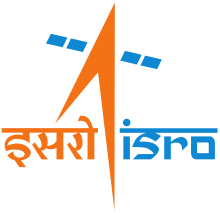 Last Date:25 Oct,2019
Last Date:25 Oct,2019
Indian Space Research Organisation (ISRO)
Kerala
4 contractual posts of Engineer (LPSC Unit) in Indian Space Research Organisation (ISRO) will be filled by eligible candidates. Interested candidates with required eligibility may send in their applications by 25-10-2019 to the provided address. send required documents along with the application form related to qualification and experience.Candidates will be called for interviews on the basis of qualification and relevant experience so send as many documents for gaining more chances for getting shortlisted for further selection process.
Employment Notification 04 Engineer (LPSC Unit) Vacancy – ISRO,Kerala
JOB DETAILS:
Name of the post – Engineer (LPSC Unit)
No of post – 04
Pay Scale – Rs 30000
Education Qualification:
BE/B.Tech or its equivalent in Civil Engineering/ Electrical Engineering and min 65% marks.
Apply to 04 Engineer (LPSC Unit) Vacancy – ISRO,Kerala
General Instruction:
- The tenure of short-term contract appointment is for a period of two years and extendable on need basis.
- Candidates should enclose self-attested true copies of the relevant certificates/marksheets (Semester/Year wise)/testimonials along with the application without which the application will not be considered.
- Those who possess the required qualification & experience as on 25.10.2019 need only apply.
- Candidates belonging to OBC/PWBD/Ex-Servicemen should produce copies of the relevant certificates issued by the Competent Authority to that effect.
- The Organisation reserves the right to terminate the assignment at any time before completion of the tenure of contract appointment, if it so decides.
- Only Indian Nationals need apply.
- No interim correspondence will be entertained.
- Canvassing in any form will be a disqualification.
- Applications completed in all respects should reach the ADMINISTRATIVE OFFICER, RECRUITMENT SECTION, LIQUID PROPULSION SYSTEMS CENTRE, VALIAMALA P.O, THIRUVANANTHAPURAM – 695547 on or before 25.10.2019 by speed post/ordinary post in a cover superscribed “Application for the position of Engineer (Civil/Electrical) on short-term contract”. Applications received after 25.10.2019 will not be considered under any circumstances.
- Applications in the appended format to be neatly typed or hand written in A4 size paper (210 x 297 mm)] with a recent passport size photograph affixed, should be sent along with self-attested true copies of testimonials, certificates and mark sheets (Semester/Year wise).
About Us:
Vacancy Notice 04 Engineer (LPSC Unit) Vacancy – ISRO,Kerala
- The Indian Space Research Organisation (ISRO) ( IAST: bhārtīya antrikṣ anusandhān saṅgṭhan) is the space agency of the Government of India headquartered in the city of Bengaluru. Its vision is to “harness space technology for national development while pursuing space science research & planetary exploration”.The Indian National Committee for Space Research (INCOSPAR) was established in the tenure of Jawaharlal Nehru under the Department of Atomic Energy (DAE) in 1962, with the urging of scientist Vikram Sarabhai recognizing the need in space research. INCOSPAR grew and became ISRO in 1969, also under the DAE. In 1972, Government of India setup a Space Commission and the Department of Space (DOS),bringing ISRO under the DOS. The establishment of ISRO thus institutionalized space research activities in India. It is managed by the DOS, which reports to the prime minister of India.
- ISRO built India’s first satellite, Aryabhata, which was launched by the Soviet Union on 19 April 1975. It was named after the mathematician Aryabhata. In 1980, Rohini became the first satellite to be placed in orbit by an Indian-made launch vehicle, SLV-3. ISRO subsequently developed two other rockets: the Polar Satellite Launch Vehicle (PSLV) for launching satellites into polar orbits and the Geosynchronous Satellite Launch Vehicle (GSLV) for placing satellites into geostationary orbits. These rockets have launched numerous communications satellites and Earth observation satellites. Satellite navigation systems like GAGAN and IRNSS have been deployed. In January 2014, ISRO used an indigenous cryogenic engine in a GSLV-D5 launch of the GSAT-14.
- ISRO sent a lunar orbiter, Chandrayaan-1, on 22 Oct 2008, which discovered lunar water in the form of ice, and the Mars Orbiter Mission, on 5 Nov 2013, which entered Mars orbit on 24 September 2014, making India the first nation to succeed on its maiden attempt to Mars, as well as the first space agency in Asia to reach Mars orbit.On 18 June 2016, ISRO launched twenty satellites in a single vehicle,and on 15 February 2017, ISRO launched one hundred and four satellites in a single rocket (PSLV-C37), a world record. ISRO launched its heaviest rocket, Geosynchronous Satellite Launch Vehicle-Mark III (GSLV-Mk III), on 5 June 2017 and placed a communications satellite GSAT-19 in orbit. With this launch, ISRO became capable of launching 4-ton heavy satellites into GTO. On 22 July 2019, ISRO launched its second lunar mission Chandrayaan-2, which consists of an orbiter, lander and rover, to study the lunar geology and the distribution of lunar water.
- Future plans include development of the Unified Launch Vehicle, Small Satellite Launch Vehicle, development of a reusable launch vehicle, human spaceflight, a space station, interplanetary probes, and a solar spacecraft mission.
VACANCY NOTIFICATIONS
click above to download
the employment notification

